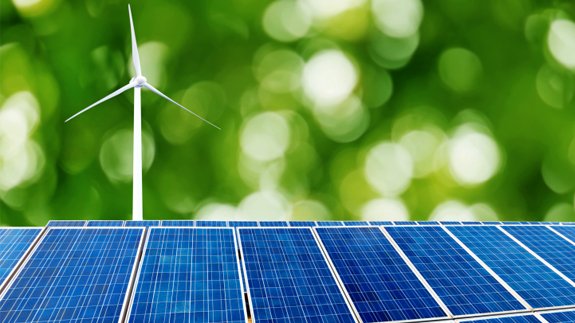The International Energy Agency (IEA) has been accused of consistently undermining the potential of solar and wind energy.
A new study claims the IEA’s annual reports between 1994 and 2014 have been publishing “misleading projections” on solar and wind power.
Published by Energy Watch Group – a non-profit global network of scientists and parliamentarians – and Finland’s Lappeenranta University of Technology, the report said the IEA says the energy sources will see no annual installations growth despite wind and solar “growing exponentially” in the last decades.
It claims the IEA’s World Energy Outlook (WEO) 2010 projection for solar capacity for 2024 – 180GW – was achieved in January this year and wind capacity in 2010 exceeded 260% and 104% – the 2002 and 2004 projections respectively for this year.
It estimates the 2030 projection would be close to 60%, assuming average growth rates of the last 20 years, compared to the IEA’s projection that renewable energy is expected to provide only 14% of global electricity supply.
The study also claims the WEO from 2000 to 2006 “highly overestimated” oil-based electricity.
It adds WEO projections overestimate the potential of the coal and nuclear sectors in the last years.
Hans-Josef Fell, President of Energy Watch Group and former Member of the German Parliament said: “The IEA has been holding back the global energy transition for years. The false WEO predictions lead to high investments in fossil and nuclear sector, hinder global development of renewable energy and undermine the global fight against climate change.”
Christian Breyer, Lead Author and Professor of Solar Economy at Lappeenranta University of Technology in Finland added the errors are “incomprehensible from a scientific point of view and irresponsible from a social perspective”.
ELN has contacted IEA for a comment.





